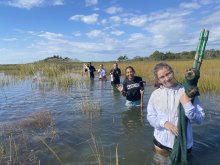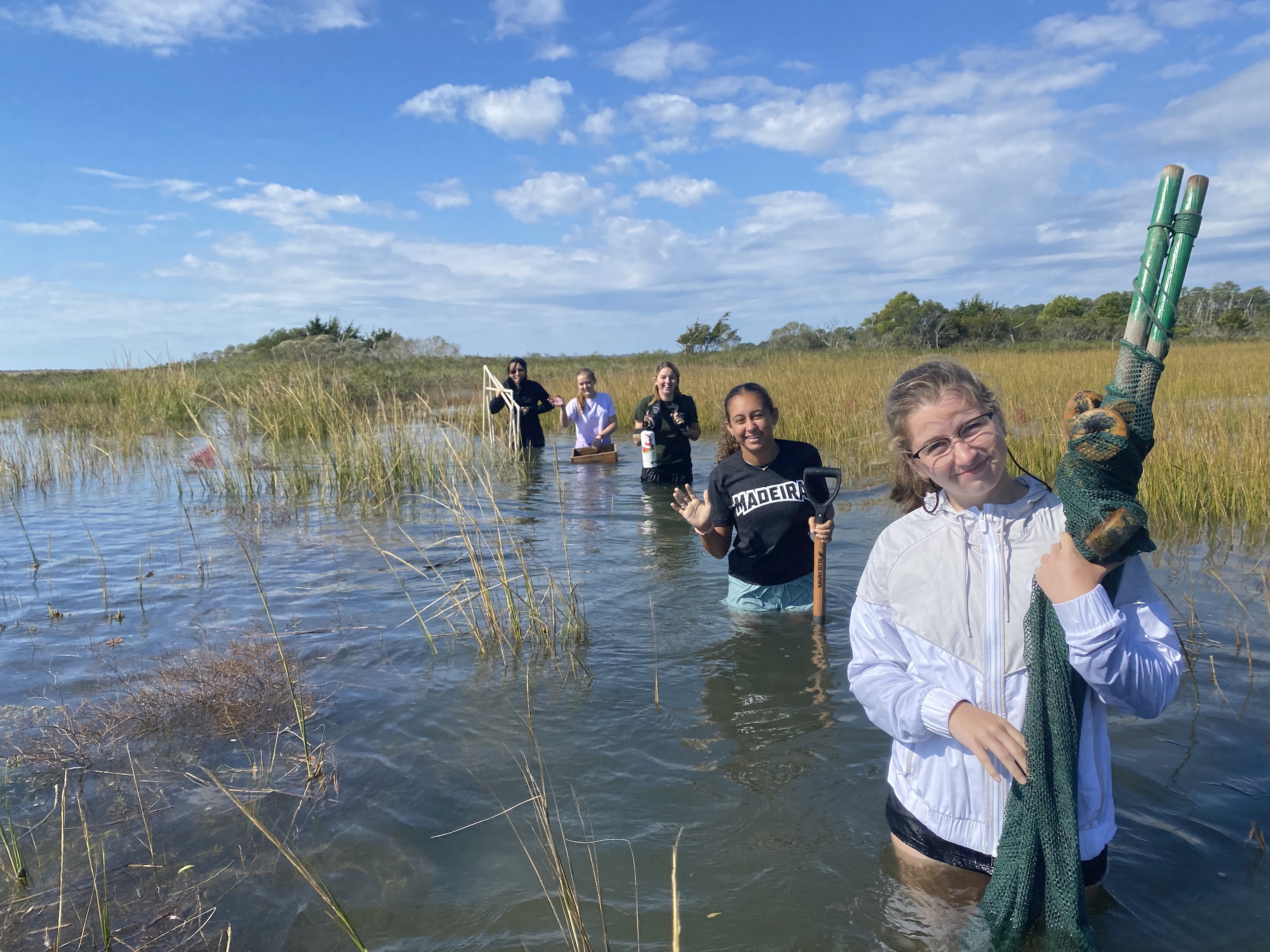
Ms. Saville-Andree, a science teacher at Madeira, is full of forward-thinking ideas on how to make her classes unique. One of her contributions this year was the design of a brand-new elective, Marine Ecology. When designing this course, it was a natural fit to include a field trip to Chincoteague Field Station because Ms. Saville-Andree had spent significant time there herself, including as a high school student. "My experience at Chincoteague helped me select a university, because the whole program is run by a consortium of universities."
Ms. Saville-Andree returned several times during college and worked at the organization on a NASA grant conducting plankton research. She wanted her students to get the same hands-on experiences that she got because it’s such an excellent way to learn and appreciate science. Generously funded by the Helen and Don Edwards Innovative Technology Fund, the three-day trip was deliberately planned to maximize student immersion.
Day 1
The first day was full of searching for and identifying organisms. The sutudents visited the intertidal zone, where they studies the zonation along the coastline and the specifi adaptations of organizm that live in that environment. THe students caught gooseberries, a type of ctenophore, which are jellyfish-like creatures. They also used a seive box to pick up mud and sediment to student what kind of organisms live underneath. They found many snails and worms.
After the visit to the intertidal zone, the group went on a boat trip, where they took water samples to test pH levels and nutrients. They also used a large trawl net to deploy along the tidal creek to se what kind of creatures live there. They found fish, crabs, sponges, mantis shrimp, and puffer fish.
Following the boat trip, the students participated in an organism lab. They assembled everything they caught and placed the invertebrates in finger bows. The The students were tasked with grouping the organisms based upon common characteristics.
Day 2
The second day started with visiting the marsh and studying wetland ecology. Students learned abotu what defines a wetland, the importance of wetlands ecologically, and all about marshes. They got dirty by playing around in the marsh mud. One of the characteristics of a marsh is the anoxic soil, which exfoliates and removes toxins from the skin, so the students got to experience mud facials!
After the marsh fun, they went kayaking at Cypress Swamp, which is a freshwater ecosystem, where the group got to see the swamp wetland ecosystem. They spotted turtles during their paddle. Lexi D. '23 says,
My favorite part of the Chincoteague trip was seeing the wetlands in person, which gave me a better understanding of just how important wetlands are to the wider environment.
Day 3
On the final day of the field trip, they went to Wallops Island. One of the features of Wallops Island is a completely undeveloped beach, which shows off all the stages of dune succession. They built dunes and then stomped on them because the group had to learn how dunes are held into place. Sydney M. '23 reflects,
I had an amazing time on the field trip for Marie Ecology. My favorite part was seeing and studying the dune succession. To be able to see for myself how dunes are held together was amazing.
Immersive experiences are invaluable for student growth.
Science is often at its best when students not only hear about the subject but also are able to experience it. To be able to see firsthand what they’re learning about is invaluable and such an amazing resource. Immersive experiences, such as Ms. Saville-Andree’s Chincoteague Bay Field Station field research, support Madeira’s academic goal of combining real-world experiences with classroom learning.






.png&command_2=resize&height_2=85)







.png&command_2=resize&height_2=85)


.jpg&command_2=resize&height_2=85)



